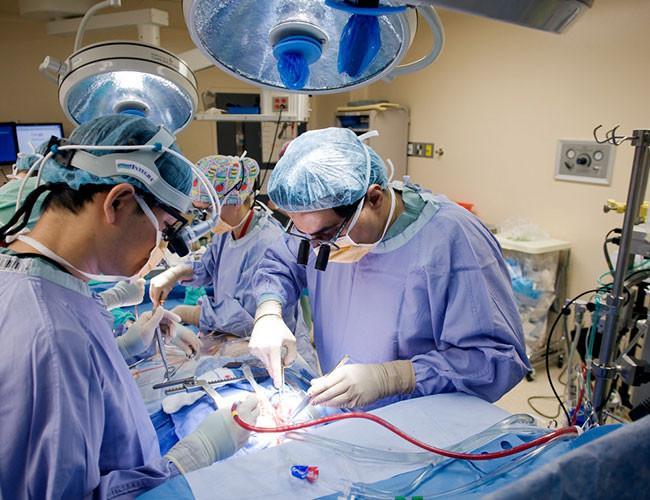
A group of Turkish doctors and engineers have developed a cardiac support system and tested it on pigs.
Turkey’s first cardiac support system was developed by doctors and mechanical and biomedical engineers and named “Istanbul Heart.”
The system is the first to be 100 percent domestically produced, from design to the final product.
The project was developed by Prof. Süha Küçükaksu from Bahçeşehir University’s Medical Faculty, Prof. İsmail Lazoğlu from Koç University’s Mechanical Engineering, as well as two biomedical doctorate students from Koç University, İbrahim Başar Aka and Çağlar Öztürk.
So far the U.S., Germany and Japan are the only three countries in the world to have developed cardiac support systems. Turkey will become the fourth if it passes the necessary tests.
The outer diameter of the cardiac support system, which weighs nearly 250 grams, consists of 50 milliliters of titanium.
The system is made up of a battery that is able to provide energy for 17 hours and an electronic control unit.
While 4.5 to 5 liters of blood pumped per minute is sufficient for a human adult, the system is able to pump up to eight liters of blood per minute.
Daily Hürriyet visited the operating room in Acıbadem University, where nearly 20 doctors were testing the cardiac support system on pigs raised for this sole purpose in the western province of İzmir.
Conditions in the operating room resembled those of humans undergoing surgery due to the 90-kilogram weight of each pig.
The weight was not accidental, as the doctors aimed to imitate the weight of a human adult as much as possible. The plan was to use the cardiac support system to pump blood for six hours.
The system is deemed to have passed a significant test if this operation ends successfully.
Speaking about their efforts, Lazoğlu said an advanced level of technology is necessary to produce a cardiac support system.
“The laboratory tests of our most recently developed system carried out with blood donated by our doctorate students were flawless. Cardiac support systems require advanced technology. The number of countries able to produce them are few,” Lazoğlu told Hürriyet, adding that utmost sensitivity to detail is required from design to production.
“Only the U.S., Japan and Germany are able to produce it. There are nearly five liters of blood in a body. If you don’t circulate it under proper circumstances, the patient will turn into mud within five minutes,” he added.
Although the four doctors and engineers that developed the system have made a joint patent application, Lazoğlu said they would prefer a local company to produce it.
“There are a couple of companies that we’ve been talking to from the industry. We would prefer to make production with a local company,” he said.
Lazoğlu also said he aims to encourage Turkish students to do their doctorates in areas that require a supreme level of technology, praising students Aka and Öztürk for their extensive contributions over the past four years.
The cardiac support systems are of huge benefit to patients with cardiac insufficiency, but their prices can reach up to 80,000 euros.
While Turkey’s Social Security Institution (SGK) currently pays for the system, the cost will drop when production begins in Turkey.
Speaking about the surgery, Küçükaksu said the team has been incredibly busy in the past four years.
“Mine and İsmail’s dreams have been realized. We saw that the system could support blood circulation. When the system functioned successfully, our eyes shed tears of happiness. Our experimental animal weighed 90 kilograms. This means our system can easily support a human being,” Küçükaksu told Hürriyet, adding that two more tests are underway.
“Then we will move onto long-term tests. We have actually reached the stage of using it on humans. We will start to work on human models in two years,” he added.